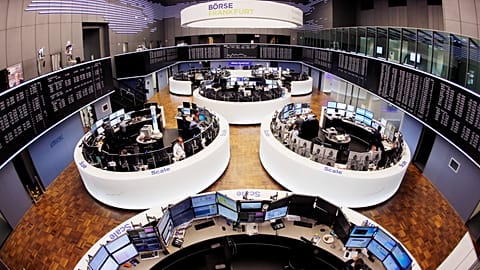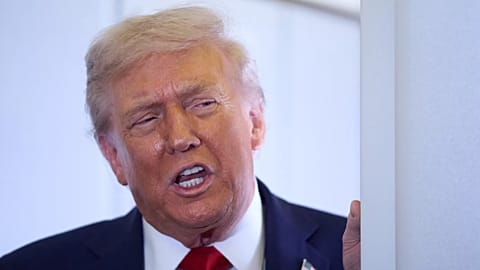Prime Minister Sébastien Lecornu resigned less than a day after his cabinet was appointed, spooking already-wary investors.
France’s route out of political turmoil once again hit an impasse on Monday as Prime Minister Sébastien Lecornu resigned less than a day after his cabinet was unveiled.
 ADVERTISEMENT
ADVERTISEMENT
 ADVERTISEMENT
ADVERTISEMENT
The news jolted already-wary investors, pushing stocks down and bond yields up, with traders seeking a higher premium for risky French debt.
As of around 10.30 CEST, the CAC 40 Index was down around 2% at 7,916.36. The yield on 10-year French bonds rose seven basis points to 3.58%, widening the gap with the yield on German bonds to a nine-month high.
The euro, meanwhile, fell against most currencies excluding the Japanese yen, notably falling 0.55% against the dollar.
Shares in French lenders Société Générale, BNP Paribas, and Crédit Agricole fell 6.21%, 5.28%, and 4.85% respectively.
Lecornu’s resignation, which came after lawmakers criticised the composition of the new cabinet, further darkens France’s outlook as it seeks a way out of a budget crisis that has brought down successive governments.
The country has seen five prime ministers in less than two years, as centre, left, and far-right parties fail to agree on a solution to tackle France’s debt.
The national debt now sits at more than €3 trillion, around 114% of Gross Domestic Product (GDP), and failures to rebalance the books have turned investors sour.
"The increased fragmentation and polarisation of domestic politics ... weakens the political system's capacity to deliver substantial fiscal consolidation,” said US agency Fitch when it downgraded France’s credit rating last month.
Lecornu’s predecessor, François Bayrou, sought to tackle France’s debt problem by cutting €44 billion from the 2026 budget, although his austerity proposals — involving a two-day reduction in national holidays — ultimately led to his downfall.
Politicians now find themselves in deadlock as lawmakers from the left seek higher taxes on the wealthy to plug France’s fiscal shortfall, a solution opposed by pro-business lawmakers. The Socialists are also seeking a less ambitious debt-cutting target.
President Emmanuel Macron is now left with limited room for manoeuvre as a new prime minister from the same political camp is likely to reach the same end as his predecessors. Macron may therefore opt for a candidate from the opposition or choose to dissolve parliament, triggering elections.
“Lecornu's surprise resignation significantly increases the pressure on Emmanuel Macron to dissolve the National Assembly and call snap legislative elections. We believe this is now the most likely scenario,” said Leo Barincou, senior economist at Oxford Economics.
There is also the possibility that Macron could call an early presidential vote, although such a move would be highly unusual.
“Bond spreads have ticked up, but the broader economic impact is likely to remain limited,” continued Barincou. “Political instability has become an entrenched feature of France's landscape, and neither businesses nor markets are likely to substantially change their views after the fall of yet another minority government. Fiscal consolidation will not occur, but it was never likely to in the first place.”
Jack Allen-Reynolds, deputy chief eurozone economist at Capital Economics, added that even though France’s bond spreads rose above Italy’s this morning, “the negative impact on the economy will be limited” as private sector financing conditions may not rise even if state borrowing costs increase.
“Even so, political uncertainty is unhelpful and economic growth is likely to remain subdued in the coming years,” he said.

















